
Kefir is a fermented dairy product originating in southern Russia and Central Asia, similar to yogurt but different in its preparation. With its tart effervescence, kefir contains a small amount of alcohol -- usually around one percent – and is sometimes likened to champagne. Substitutions for kefir can be made with yogurt, buttermilk and even coconut milk for a non-dairy version of this healthful beverage.
Fermenting
Both yogurt and kefir were developed by wandering nomads as ways to preserve milk. Kefir culture is made from grains containing both bacteria and yeast, while yogurt is fermented through bacteria alone. The beneficial probiotics in kefir are much more numerous in variety – up to ten times the amount of those found in yogurt containing live cultures. when substituting yogurt or other fermented dairy products for kefir, the health benefits will not be exactly the same.
Drinking
Many people who are lactose intolerant can drink fermented dairy products such as kefir, buttermilk and yogurt because the presence of enzymes in these products help to break down the lactose. To make a kefir beverage substitute, choose unsweetened yogurt -- to preserve the largest number of probiotics -- and thin with milk. Blend with frozen fruit and dates to sweeten for smoothies. Kumiss -- another fermented milk beverage traditionally made from mare’s milk – serves as a direct substitution for kefir.
Baking
Starters for sourdough bread and other baked goods can be made with kefir due to its active yeast cultures. Cultured buttermilk serves as a good substitution for soaking whole grains in natural leavening. It also adds tenderness and airiness to baked goods such as brownies, quick breads and pancakes. Milk can also be used if “soured” first by adding white vinegar or lemon juice.
Dressings and Sauces
Healthy ethnic dips such as cucumber raita can be made with yogurt or kefir interchangeably, adding chopped herbs and other condiments to thicken or thin as desired. Plain, unsweetened yogurt and buttermilk provide a bit of tang and can be used in place of kefir to make dressings and uncooked sauces. Sour cream thickens cooked sauces and adds creaminess to soups in place of kefir.
Non-dairy Substitute
A smooth, sweet, thick beverage with the health benefits of kefir can be made from coconut milk for a non-dairy alternative. Kefir grains ferment coconut milk the same way they ferment cow’s milk. To make your own, place the kefir grains in a glass of coconut milk, cover with a cloth and let sit in a warm environment for 12 to 24 hours.
Related Articles
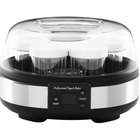
How to Mix Yogurt With Unflavored ...

What Types of Fruit Can You Mix With ...

How to Substitute With Dry Milk

Make It a Manhattan: Classic Manhattan ...
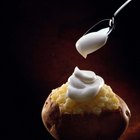
What Is "Cultured Cream"?

Sources of Calcium in Indian Food

Baking With Juice Concentrates

Difference Between Yogurt & Curd

How to Substitute Soy Milk for Milk in ...

Can You Repair Runny Yogurt?
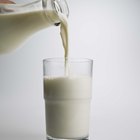
Whole Milk Vs. Lactaid Milk
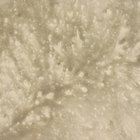
Uses for Curdled Milk
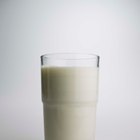
How to Cook With Lactaid
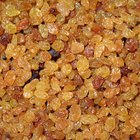
How to Prepare Water Kefir to Drink
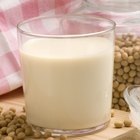
Is Soy Milk Casein-Free?

Can You Substitute Yogurt for Milk in ...

Can You Use Coffee Creamer in Place of ...
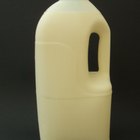
How to Make Creme With Alpha Hydroxy ...

How to Use Evaporated Milk in Place of ...
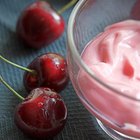
Instructions for the Euro Cuisine ...
References
- Fermenting Foods; Wardeh Harmon
- The Book of Yogurt; Sonia Uvezian
- Cook’s Thesaurus: Cultured Milk Products
- Mark's Daily Apple: Homemade Coconut Milk Kefir
Writer Bio
For more than 10 years, Carol Butler has run a small, off-grid furniture business with her husband and is a regular contributor to the Edible community of magazines. As staff writer for RichLife Advisors, she covers financial planning and other industry-related topics. She holds a B.F.A. in theater arts.
Photo Credits
Jupiterimages/Creatas/Getty Images